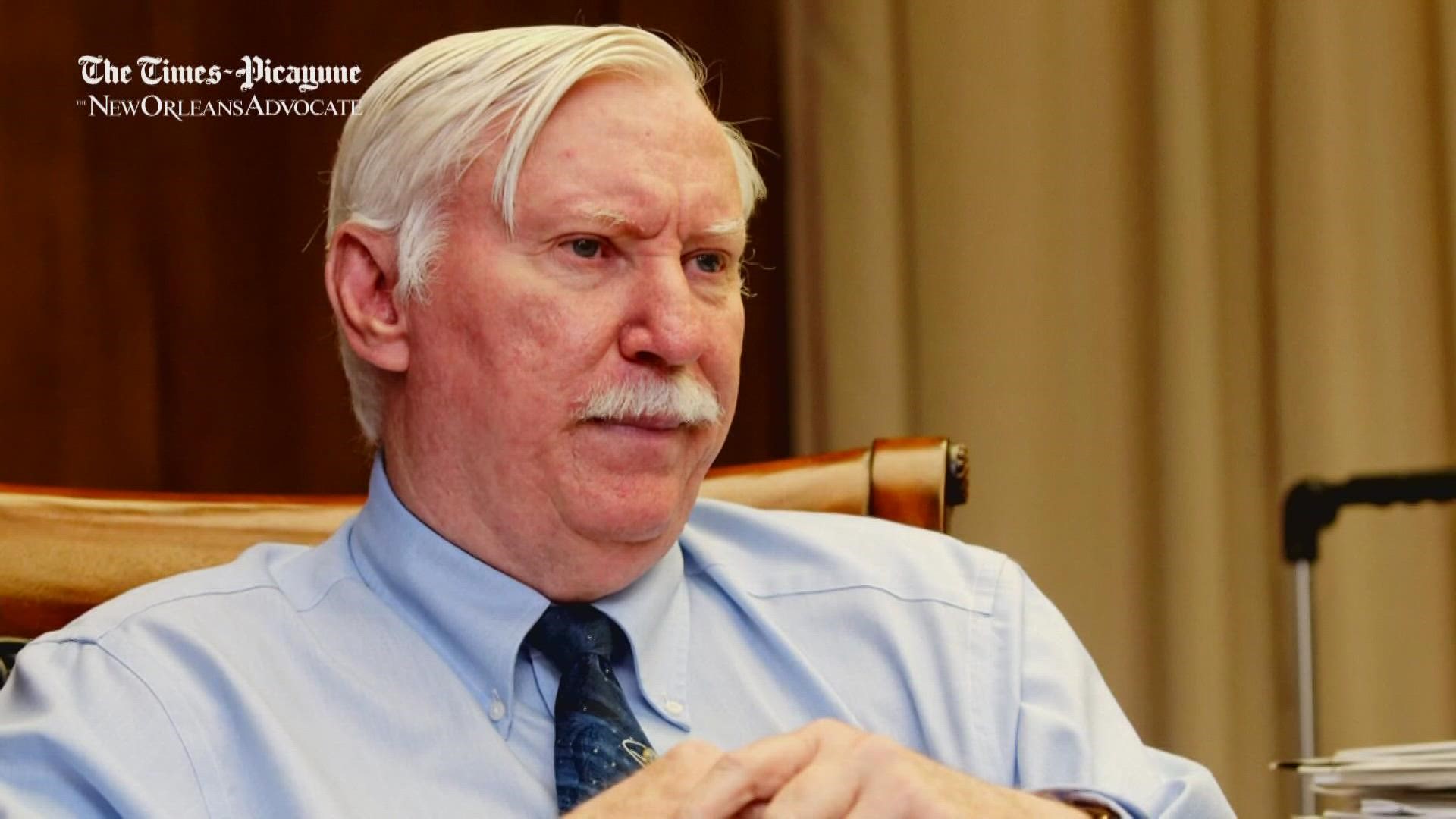NEW ORLEANS — A jury was selected on Monday after a daylong process and opening statements are expected on Tueday in the largest bank fraud trial in Louisiana history, a case that stems from the $1 billion collapse of New Orleans-based First NBC Bank in 2017.
It was the largest failure of a U.S. bank in the last decade.
Federal insurance from the FDIC had to cover more than $1 billion lost from customers’ accounts and the publicly traded bank's stockholders lost millions they'll never recover.
It was a spectacular failure for Ashton Ryan, the New Orleans banker who started First NBC in 2006 and built a reputation as the city's top financial guru as the region rebuilt from Hurricane Katrina.
But federal prosecutors contend this wasn't just bad banking. They allege Ryan was a criminal mastermind, who handed out bad loans over and over, hiding them from the bank's board of directors and auditors as he collected millions in salary, and millions more in kickbacks.
Former U.S. Attorney Harry Rosenberg says prosecutors must clearly explain a highly technical, document-heavy case.
“I don't want to say dumb it down, but they do have to simplify it so that the jurors can understand the basic issues aside from the huge numbers that are presented in the indictment,” Rosenberg said.
Ryan’s defense attorney, Eddie Castaing, estimated the government produced 10.5 million documents in the case, with some documents containing more than 1,000 pages each. But the U.S. Attorney’s Office also has plenty of witnesses ready to take the stand to point a finger at Ryan, including six businessmen who admit they falsified financial records to borrow more than $263 million they knew they couldn't repay but claim they did so at Ryan’s direction or with his blessing.
They also have at least three former bank officials, who say they helped Ryan hide the bad loans and overdrafts so the bank's books would look healthy, and so they and Ryan could keep making big salaries.
“If he discloses a series of large bad loans, there's the potential of being replaced as the head of the bank,” Rosenberg said.
But Castaing said he would vigorously defend Ryan from the charges, telling WWL-TV shortly after Ryan was indicted in July 2020 that Ryan was the real victim here.
“It appears that some key borrowers were committing fraud against the bank,” he said. “And if they committed fraud against the bank, they also did so against the CEO and president, Mr. Ryan.”
Castaing said he couldn’t speak further about Ryan’s defense ahead of the trial, but said he would lay it all out in opening statements, which could start as soon as Tuesday.
The trial, presided over by U.S. District Judge Eldon Fallon, is expected to last at least a month.
As more borrowers and bank officers pled guilty, prosecutors laid out more of their case in court documents.
They claim Ryan loaned more than $263 million to just six borrowers and got them to kick back more than $2 million to him or his businesses.
The biggest single borrower to plead guilty was Mississippi developer Gary Gibbs, who admitted faking financial records to borrow $123 million. He is expected to testify in the second week of the trial.
Contractor Jeffrey Dunlap also pleaded guilty, claiming Ryan helped him fake financial records to get $22 million in loans, all while Ryan allegedly owed Dunlap’s company $5 million for construction work on property Ryan co-owned in Mandeville.
Court records also include an email Ryan sent to Kenneth Charity, a developer who owed the bank $18 million and later pleaded guilty, admitting he used some of the loan proceeds to buy cars, clothes and private school tuition.
He had promised neighbors he would redevelop some key storm-damaged properties after Hurricane Katrina, including the prime real estate at the old Lake Terrace Shopping Center near Lake Pontchartrain.
In the 2013 email, Ryan told Charity any other bank would have foreclosed on him long ago and added, “I must be an imbecile.”
Castaing called that email “just another piece of evidence that Mr. Ryan was doing everything he could to collect on loans for which there had been defaults.”
But prosecutors allege it’s actually proof that Ryan was in on the con, because he went ahead and loaned Charity another $5 million after sending that email.
► Get breaking news from your neighborhood delivered directly to you by downloading the new FREE WWL-TV News app now in the IOS App Store or Google Play.

